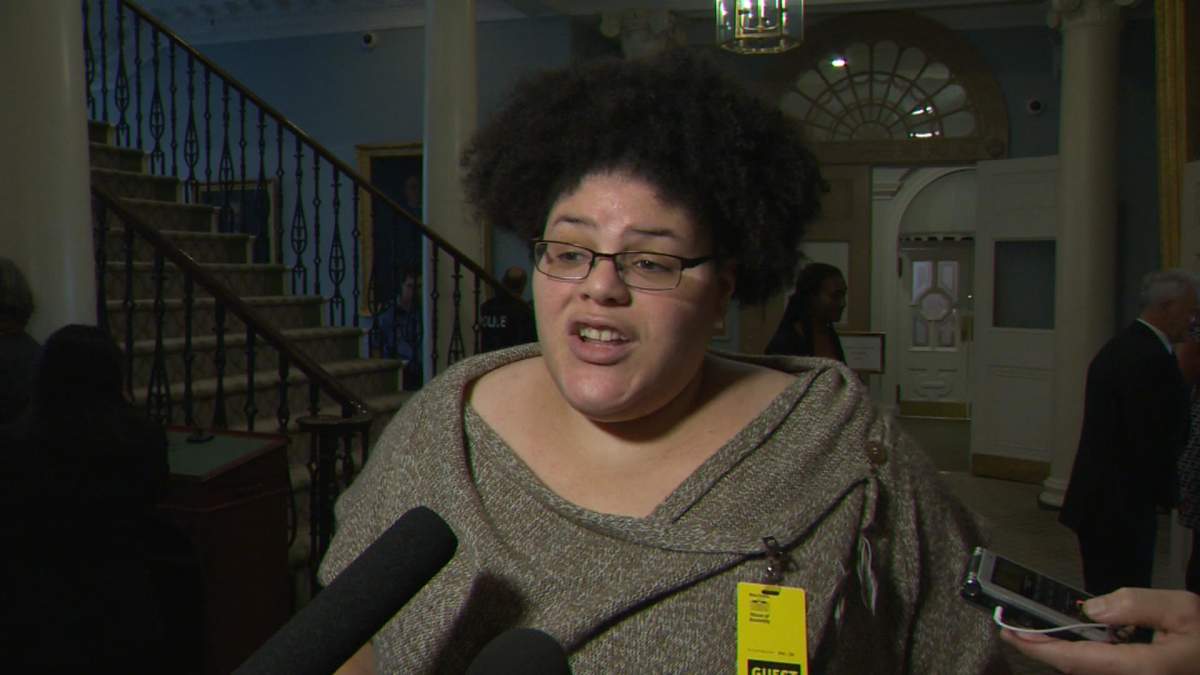An organization that has called for a permanent end to street checks in Nova Scotia is “very happy” that the provincial government has made the decision to extend their moratorium on the practice permanently.

“We’re relieved,” said Vanessa Fells, program coordinator for the Dartmouth-based group Decade for People of African Descent Coalition, when reached by phone on Friday afternoon.
“We’ve always called for a ban.”
The province’s justice minister announced on Friday that the temporary moratorium established earlier this year will be extended permanently.
Mark Furey took the step after an independent legal opinion written by a former chief justice of the Nova Scotia Supreme Court found the practice to be illegal.
Fells said she hopes the decision by the department of justice can spark progress in the negative relationship that has existed between the department and the African Nova Scotian community for decades.

Get daily National news
“This is the beginning of a new relationship between the African Nova Scotian community and the Department of Justice. This is a new journey we’ll have to go on together,” said Fells.

It was a sentiment echoed by Furey, who said that his decision was a product of multiple factors, including the independent legal assessment.
“They have articulated in many cases and many examples of these practices and these behaviours. I’ve said from the outset that street checks based on race are unacceptable,” said Furey.
“It’s the collective facts and predominantly the discussion I’ve had with the youth of the African Nova Scotian community that given the success of the moratorium, which Chief Justice MacDonald alludes to in his opinion, it’s appropriate to ban street checks as they have been defined.”
Fells stressed that the fight against street checks was never just about her organization.
READ MORE: N.S. justice minister suspends police street checks on pedestrians, vehicle passengers
A 180-page report written by Scot Wortley, a professor of criminology at the University of Toronto, found that African Nova Scotians were five times more likely to be stopped and street-checked by police than the general population.
“But this was not just about African Nova Scotians calling for an end to street checks… street checks challenged everyone’s rights,” she said.








Comments